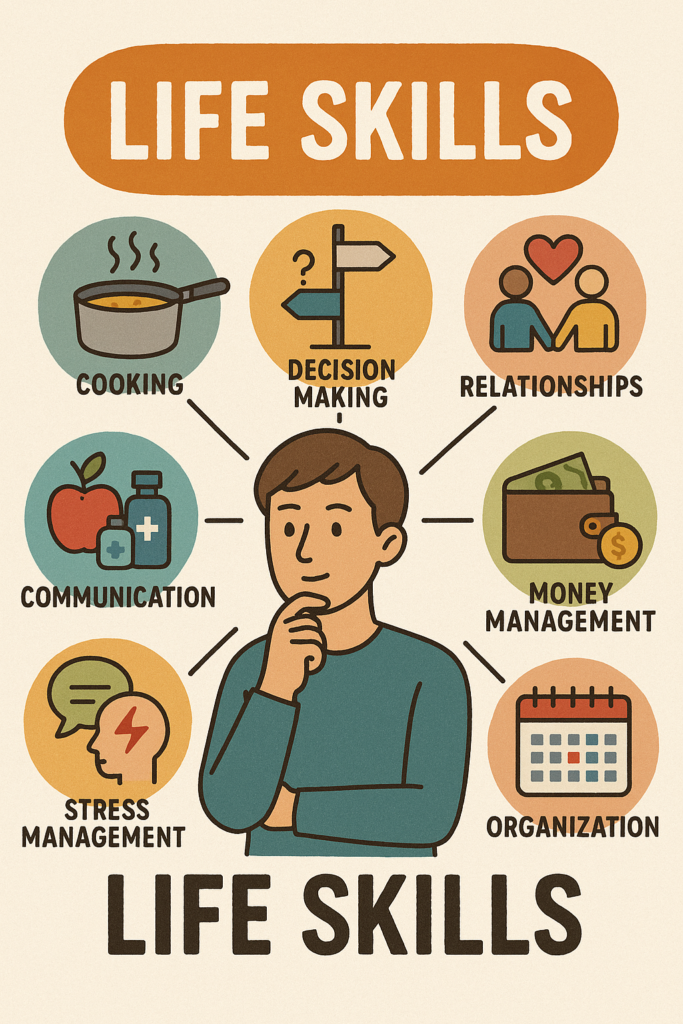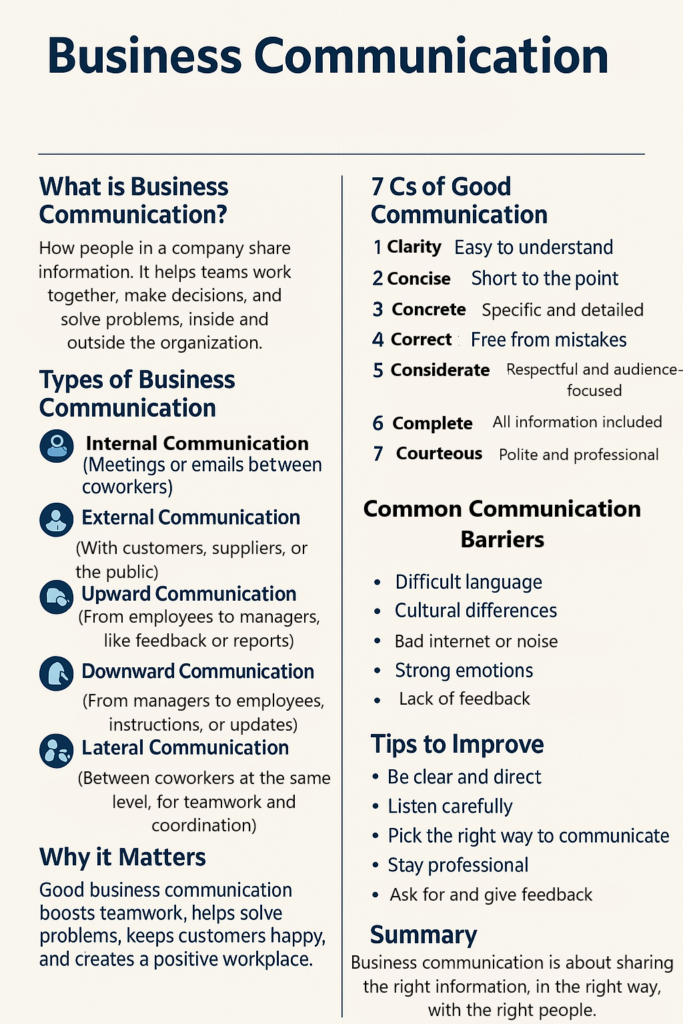Life Skills in terms of Indian context and currency, focusing on important areas like Personal Finance, Time Management, Communication Skills, Critical Thinking, and Problem Solving.
What Are Life Skills?
Life skills are the abilities you need to manage different aspects of your life effectively. They help you live independently, make smart decisions, and deal with challenges in work, relationships, and everyday situations. Life skills are not just about technical knowledge, but also about how to function well in society, stay organized, manage stress, and make decisions that lead to a successful and fulfilling life.

1. Personal Finance (Budgeting, Saving, Investing)
Personal finance is about managing your money wisely. It involves making decisions about how to spend, save, and invest your money to secure your financial future.
Budgeting
Budgeting is the process of planning how to spend your money. It helps you see how much you have coming in (income) and how much you are spending (expenses). By creating a budget, you can avoid overspending and ensure you’re saving for future goals.
- Example: If you earn ₹40,000 a month, you plan to spend ₹25,000 on living expenses (rent, food, utilities) and save ₹10,000 for emergencies or future needs.
Saving
Saving means putting some of your money aside for the future. It’s important to save regularly, even if it’s just a small amount. This helps you prepare for unexpected expenses, like medical bills, or for big goals like buying a house or going on vacation.
- Example: You can open a savings account and deposit ₹5,000 each month so you have money saved for an emergency.
Investing
Investing is when you put your money into things that can grow over time, like stocks, mutual funds, or real estate. The goal of investing is to make your money grow, so you have more in the future. However, investing can come with risks, so it’s important to educate yourself first.
- Example: You can invest ₹10,000 in a mutual fund, with the expectation that over time, the investment will grow and provide you with returns.
2. Time Management
Time management is the ability to use your time effectively and efficiently. It’s about balancing different tasks, setting priorities, and staying organized so you can get more done in less time.
Why is Time Management Important?
- It helps you meet deadlines, especially in work or study.
- Reduces stress by making sure you’re not overwhelmed with too many tasks.
- Gives you more free time to enjoy other activities or rest.
Key Tips for Time Management:
- Prioritize tasks: Do the most important tasks first.
- Set goals: Break large tasks into smaller steps.
- Use tools: Calendars, to-do lists, or apps to keep track of what needs to be done.
- Avoid distractions: Stay focused on one task at a time to be more productive.
- Example: If you have exams, a job, and family responsibilities, prioritize your tasks based on deadlines. Set aside time for studying, family, and work, so you can manage everything smoothly without stress.
3. Communication Skills
Communication skills are essential for expressing your ideas clearly and understanding others. Good communication helps you build strong relationships, succeed in your career, and work well with others.
Why are Communication Skills Important?
- Helps you express your ideas and feelings clearly.
- Builds stronger relationships with family, friends, and coworkers.
- Prevents misunderstandings and confusion.
Key Elements of Communication:
- Listening: Pay attention to what others are saying before responding.
- Speaking clearly: Use simple and direct language so others can understand.
- Body language: Your facial expressions, gestures, and posture say a lot, so make sure they match your words.
- Non-verbal cues: Be aware of what you’re communicating without words, such as tone of voice and eye contact.
- Example: In a meeting at work or school, listening carefully to others’ ideas before speaking shows respect and helps you build better responses.
4. Critical Thinking
Critical thinking is the ability to think carefully and logically about things. It means not just accepting information at face value but asking questions, analyzing the situation, and making decisions based on facts and reasoning.
Why is Critical Thinking Important?
- Helps you solve problems and make better decisions.
- Encourages you to think independently and not just follow others.
- Prevents you from making rash decisions based on emotions or assumptions.
Key Steps in Critical Thinking:
- Ask questions: What is the problem? Why is it happening?
- Analyze information: Look at all the facts and evidence.
- Consider different viewpoints: Think about the issue from different perspectives.
- Make a decision: Choose the best option based on reasoning and evidence.
- Example: If someone tells you a product is the best, you don’t just accept it. You look for reviews, compare it with other products, and decide based on your own research.
5. Problem Solving
Problem solving is the ability to find solutions to challenges or difficulties you encounter in life. It involves analyzing the situation, coming up with options, and choosing the best solution.
Why is Problem Solving Important?
- Helps you overcome obstacles in your personal and professional life.
- Reduces stress because you know how to handle tough situations.
- Helps you become more independent and confident.
Steps in Problem Solving:
- Identify the problem: Understand what’s going wrong or what needs fixing.
- Gather information: Find out as much as you can about the issue.
- Generate possible solutions: Think of different ways you could solve the problem.
- Evaluate and choose a solution: Look at the pros and cons of each option and choose the one that seems best.
- Take action: Implement the solution and see if it works.
- Review: Afterward, see if the problem is solved or if you need to try something else.
- Example: If your phone isn’t charging, you can first check if the charger is working, try restarting the phone, or even ask a friend or technician for help if those steps don’t work.
In Summary:
Life skills like personal finance, time management, communication skills, critical thinking, and problem solving are important because they help you live a more organized, successful, and fulfilling life. Here’s a quick recap:
- Personal Finance (Budgeting, Saving, Investing) helps you manage your money wisely.
- Time Management helps you prioritize and get things done on time.
- Communication Skills are key to building relationships and getting your point across clearly.
- Critical Thinking helps you analyze situations and make smarter decisions.
- Problem Solving teaches you how to face challenges and find the best solutions.
Mastering these life skills can lead to greater success in both your personal and professional life!








